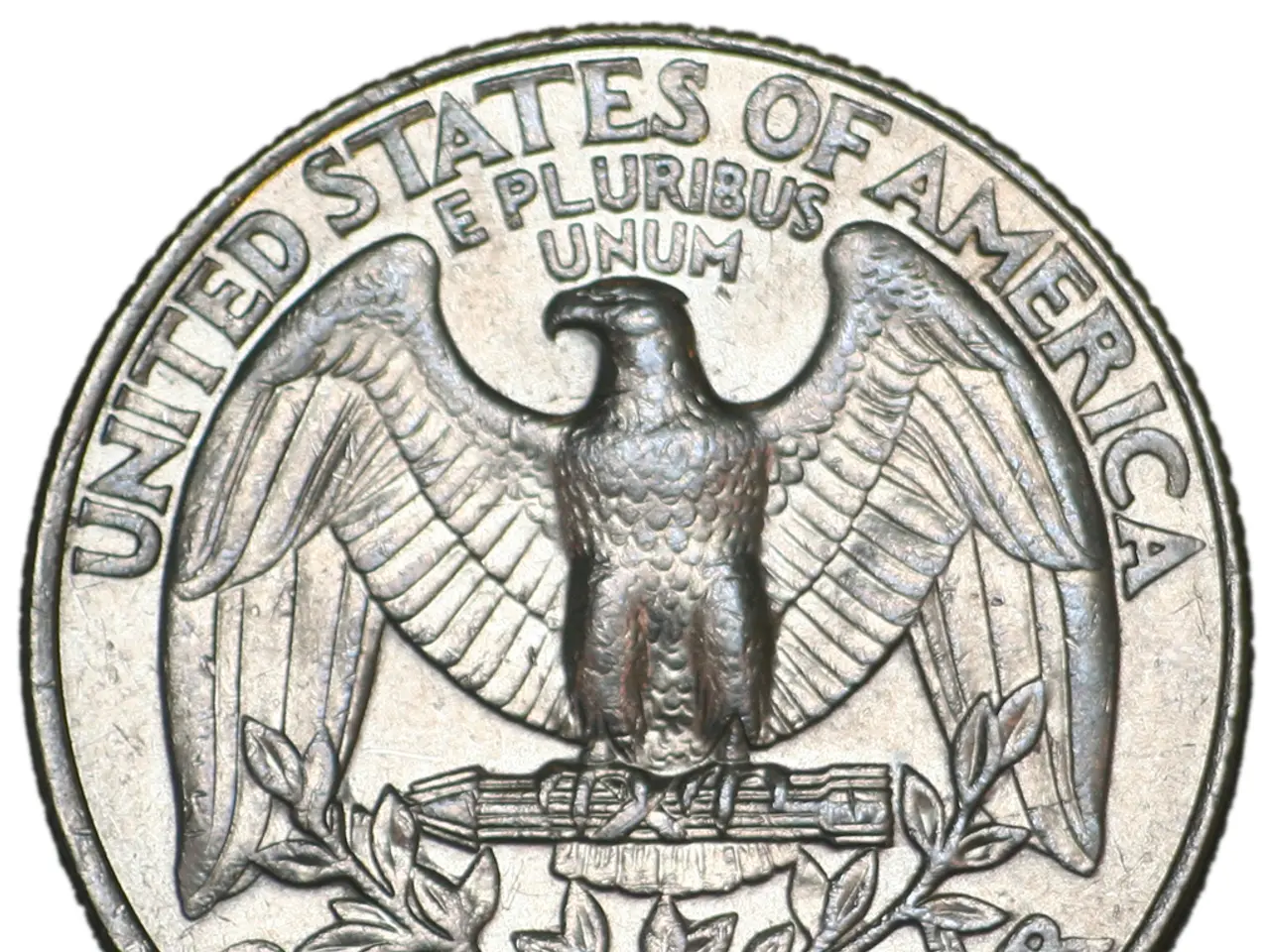Nigerian currency, the Naira, registers a minor increase in value against the U.S. Dollar in August's forex trading activities within Nigeria.
The Federal Reserve (Fed) left some room for a potential 50-basis-point interest rate cut, depending on upcoming labor market data next week, as Chair Jerome Powell signaled flexibility. Meanwhile, former Governor Lael Brainard raised concerns about potential changes in the Fed's composition.
Elsewhere, the Nigerian naira strengthened against the US dollar, with the currency rising from N1,552 per dollar on Thursday to N1,545/$ on Friday in the parallel market. This strengthening trend continued on the Nigerian Foreign Exchange Market (NFEM), where the naira appreciated to N1,531/$ from N1,533 per dollar on the previous trading day.
The strengthening of the naira coincided with an increase in foreign exchange inflows. Nigeria's external reserves grew by $1.72 billion to $41.3 billion within the month, and foreign portfolio investors (FPIs) inflows increased from $1.5 billion in June to $1.7 billion. This influx is attributed to higher diaspora remittances, with Nigerian diaspora remittances rising by 200 percent to $600 million in the last two months.
Despite these positive economic indicators, geopolitical tensions remain high. The ongoing unrest surrounding Fed Governor Lisa Cook's dismissal has led options pricing to indicate investors expect the USD to remain weak. Additionally, peace efforts between Russia and Ukraine have been failing, with the White House stating that it believed Putin had agreed to meet with Ukrainian President Volodymyr Zelenskyy.
In the United States, the US dollar index finished the week positive as investors increased buying pressure on the greenback. The US Treasury yield curve remains stable, with the benchmark 10-year ending a three-day decline and holding at 4.22 percent, near four-month lows.
President Trump has been attempting to install more dovish-aligned figures at the central bank, with Powell's term lasting until 2026. However, concerns about a more politicized Fed have grown, as Powell left some flexibility regarding a potential interest rate cut.
It's important to note that there is no specific publicly available detailed information about particular institutions investing large amounts of foreign exchange into the Nigerian market or their motivations.
In conclusion, while the global economy and geopolitical landscape present challenges, there are signs of resilience, particularly in the Nigerian market. However, ongoing uncertainties and tensions require close monitoring.
Read also:
- Understanding Hemorrhagic Gastroenteritis: Key Facts
- Stopping Osteoporosis Treatment: Timeline Considerations
- Trump's Policies: Tariffs, AI, Surveillance, and Possible Martial Law
- Expanded Community Health Involvement by CK Birla Hospitals, Jaipur, Maintained Through Consistent Outreach Programs Across Rajasthan








